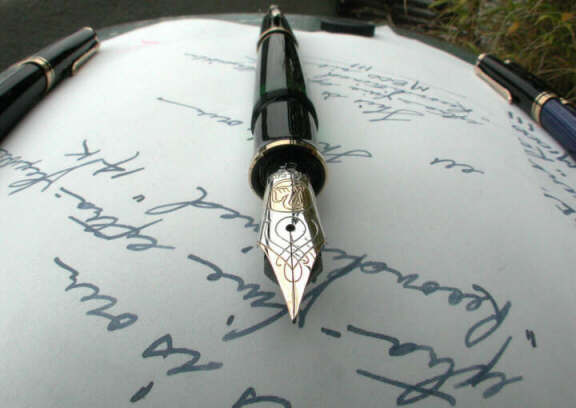
Look at my face. That is joy. That is delight. That is affirmation.
It is March 17, St. Patrick's Day. The sun is finally shining, crocuses and hyacinthes are pushing up through the thawing earth, and once again today, I have been reminded of the reason I draw my nourishment from teaching.
I have just read an assignment submitted by a first-year student. The student is in the course that was not particularly responsive to inquiry learning, not particularly responsive to transformative learning or social constructivist learning. Many in the class seemed to be not particularly responsive to university at all.
I had begun to wonder whether my beliefs in student-centred learning had been misplaced. After all, students have in the past reacted well to the kind of creative freedom and acknowledgment of their views that my pedagogy reinforces. Yet this group seemed to be entrenched in cynicism. No matter what I proposed in the way of learning avenues, many of the class seemed to find reasons to dismiss the ideas or to discredit their intellectual value as mere necessary evils that one had to endure in order to get the credentials they wanted for life after uni.
In a semester-long Gethsemane of soul searching, I had been questioning my value to these students as a guide to their intellectual maturity since Christmas break.
And then I read the assignment of the student to whom I have referred.
There it was, a well-written, thoroughly researched response that sank a spade firmly into the superficial observations, dug back the obvious top layers and exposed the rich and subtle substrata of meaning and interconnection. The tone was mature and confident, the vocabulary admirable. The argument was introduced, examined and triangulated, and a reflective conclusion bound it all together.
A young scholar had emerged into the brilliant sunlight of his intellectual Spring.
There are more like this in that pile of papers that now beckons to me. I will bet my life on it.
With portents of Spring like this, I am now content to settle into my own inevitable Winter and let new growth blossom.
[Post-script: A student responded to my despair in her own blog post that she revealed to me later: read that response here in
"An Open Letter to Barry Joe"]
 People felt free to come out when they wanted to, or to give it a miss when they had other things to do. The relaxed atmosphere was wonderful, but the people were the best part. It was such a pleasure to get to know these young men and women simply as people, people with wonderful, crazy, provocative ideas. There were no constructed roles, no professor and student. And when they brought friends along, or family members, our conversations were that much enriched. Social constructivism in action popped into my mind.
People felt free to come out when they wanted to, or to give it a miss when they had other things to do. The relaxed atmosphere was wonderful, but the people were the best part. It was such a pleasure to get to know these young men and women simply as people, people with wonderful, crazy, provocative ideas. There were no constructed roles, no professor and student. And when they brought friends along, or family members, our conversations were that much enriched. Social constructivism in action popped into my mind.




